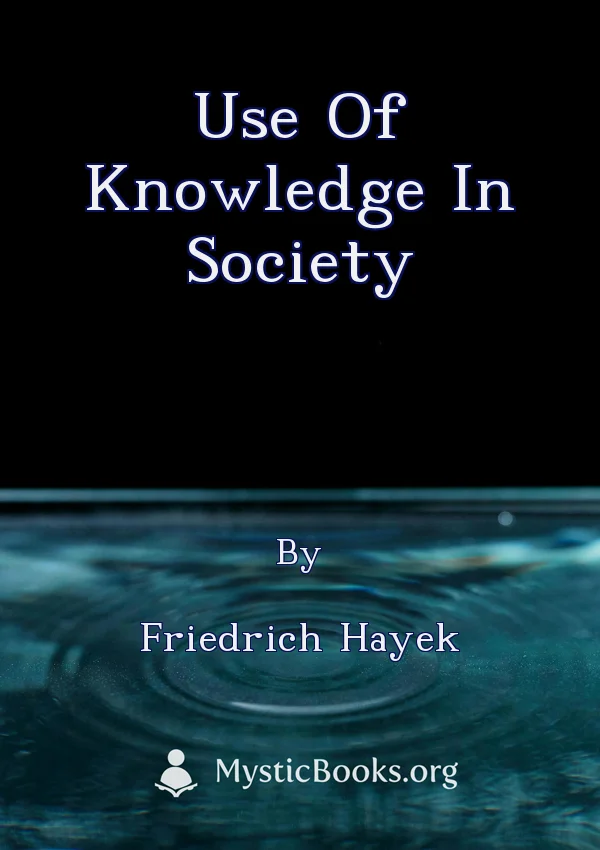
Use of Knowledge in Society
'Use of Knowledge in Society' Summary
Friedrich Hayek's seminal essay, "Use of Knowledge in Society," explores the critical role of knowledge and information in economic decision-making. Hayek contends that a centrally planned economy cannot effectively utilize the vast and dispersed knowledge present within a society. He posits that individual actors, acting within a market framework, possess crucial knowledge about their specific circumstances and preferences. Hayek argues that market prices act as a vital signaling mechanism, conveying information about relative scarcities and preferences across different sectors of the economy. This decentralized information flow enables individuals to make informed decisions about production, consumption, and resource allocation, leading to more efficient outcomes than a centrally planned system. Hayek emphasizes that attempts to impose centralized control over economic activity inevitably lead to inefficiencies and misallocation of resources. He concludes that the free market, with its reliance on decentralized knowledge and price signals, is the most effective mechanism for promoting economic progress and societal well-being.Book Details
Language
EnglishOriginal Language
Published In
Genre/Category
Tags/Keywords
Download eBooks
Listen/Download Audiobook
Unfortunately, no Audiobooks/Narrations exist for this book, yet...
Related books

Editorials from The Dial magazine, Volume 66 by Martyn Johnson
This book compiles editorials published in Volume 66 of *The Dial*, a prominent fortnightly political and literary review, from January 11 to June 28,...

Eutifrón by Plato (Πλάτων)
El diálogo de Platón, *Eutifrón*, explora la naturaleza de la piedad a través de una conversación entre Sócrates y Eutifrón. Eutifrón intenta justific...
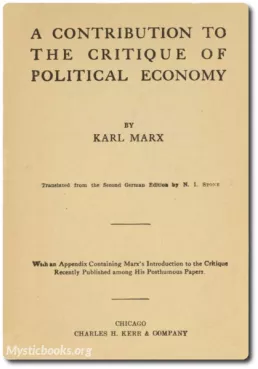
A Contribution to the Critique of Political Economy by Karl Marx
The book is a critical analysis of the capitalist system and the economic theories that support it. Marx examines the relationships between labor, cap...

Great Encyclical Letters of Pope Leo XIII by Pope Leo XIII
This collection compiles thirty of Pope Leo XIII's most prominent encyclicals and letters, offering a comprehensive look at his thoughts on various is...
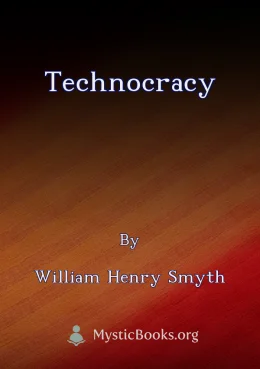
Technocracy by William Henry Smyth
William Henry Smyth's "Technocracy" explores the concept of a government run by technical experts. The book examines the potential benefits and drawba...

rote Stern by Alexander Aleksandrovich Bogdanov
Rote Sterne is a utopian science fiction novel by Alexander Bogdanov, written in 1908. The novel depicts a socialist society on the planet Mars, where...

Wage-Labour and Capital by Karl Marx
"Wage Labour and Capital" is an 1847 economics essay by Karl Marx, first published in articles in the Neue Rheinische Zeitung in April 1849. It is wid...
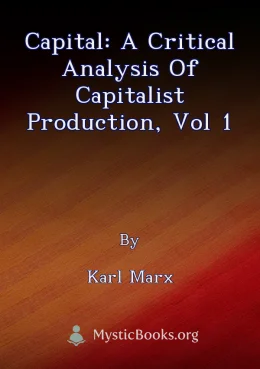
Capital: a critical analysis of capitalist production, Vol 1 by Karl Marx
Capital, Volume I is the first of three volumes in Karl Marx’s monumental work, Das Kapital, and the only volume to be published during his lifetime,...
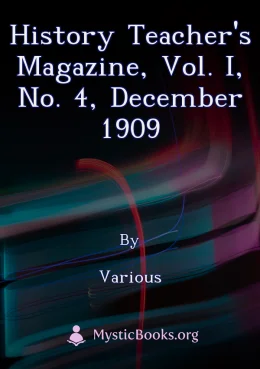
History Teacher's Magazine, Vol. I, No. 4, December 1909 by Various
The History Teacher's Magazine is a publication dedicated to the advancement of history education. This particular issue, published in December 1909,...

Rerum Rusticarum libri tres by Marcus Terentius Varro
Marcus Terentius Varro's *Rerum Rusticarum libri tres* (Three Books on Farming) offers a comprehensive and insightful examination of Roman agriculture...
Reviews for Use of Knowledge in Society
No reviews posted or approved, yet...